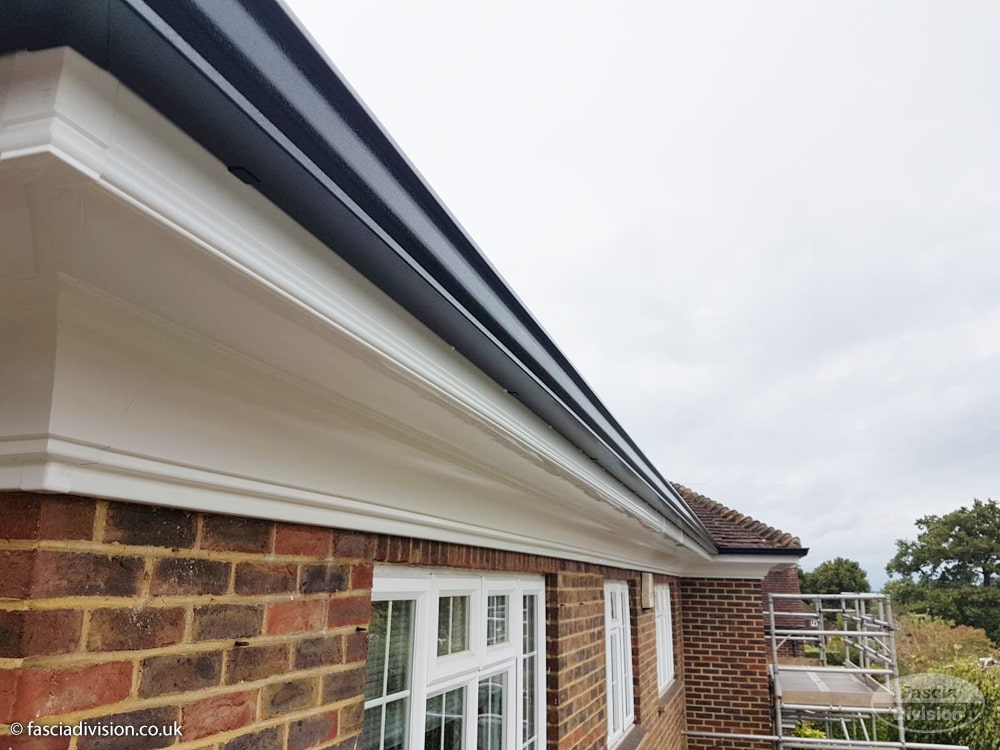
7
七月The 10 Most Scariest Things About Fascia And Soffit Maintenance

Fascia and Soffit Maintenance: A Comprehensive Guide
When it pertains to keeping a home, the value of outside components like fascia and soffit can not be overstated. These parts not only contribute to the aesthetic appeal of a home but likewise serve important functions in terms of ventilation, moisture control, and structural stability. This short article looks into fascia and soffit maintenance, covering their meanings, functions, common concerns, and efficient maintenance practices to ensure their durability and efficiency.
Understanding Fascia and Soffit
Fascia is the vertical board that runs along the edge of the roofing, normally where the roofing eaves extend. It holds the gutter system in location and is frequently painted to match or highlight the exterior of the home.
Soffit, on the other hand, is the horizontal board that links the fascia to the home's outside wall. Soffits are generally vented to permit air flow into the attic space, promoting ventilation and preventing heat and moisture accumulation.
Functions of Fascia and Soffit
The main functions of fascia and soffit consist of:
- Protection: They shield the attic and roof structure from the aspects, including rain, snow, and bugs.
- Ventilation: The vented soffit enables for appropriate air flow, which helps to avoid mold and condensation in the attic.
- Aesthetic Appeal: Both fascia and soffit add to the total curb appeal of a home, boosting its visual interest.
Common Issues with Fascia and Soffit
Like any part of a home, fascia and soffit can face a variety of issues that may compromise their efficiency. Common issues include:
- Rotting: Moisture and humidity can lead to wood rot in both fascia and soffit, deteriorating their structural integrity.
- Bug Infestation: Insects, like bees, wasps, and termites, may nest in these areas if left unattended.
- Peeling Paint: As weather and time take their toll, paint can start to peel, interfering with the home's appearance and permitting for more wetness infiltration.
- Gutter Issues: Poorly installed or kept seamless gutters can overflow, leading to water damage and soil disintegration around fascia and soffit.
- Vent Blockages: Dust, particles, and nesting products can hinder airflow from soffit vents, leading to improper ventilation in the attic.
Maintenance Tips for Fascia and Soffit
Regular maintenance is crucial for ensuring fascia and soffit stay practical and appealing. Here are some necessary maintenance actions:
1. Regular Inspections
Conduct regular inspections, particularly after serious weather, to inspect for indications of damage or wear. Look for:
- Cracks or divides in the fascia
- Indications of rot or mold
- Loose or drooping sections
- Insect activity
2. Tidy Gutters and Downspouts
Blocked seamless gutters can lead to water pooling, which increases the risk of rotting fascia and soffit. Make sure rain gutters and downspouts are without particles and working efficiently:
- Remove leaves, twigs, and dirt
- Flush with water to inspect drainage
- Clear any blockages
3. Painting and Finishing
If fascia and soffit are wood, painting or staining them can improve their resistance to wetness and insects:
- Choose durable, weather-resistant paint or stain
- Repaint every few years as needed
- Repair any peeling before repainting to ensure adhesion
4. Ensure Proper Ventilation
To avoid wetness buildup in the attic, ensure that soffit vents remain clear:
- Remove any clogs brought on by debris or bugs
- Clear outside soffit holes to permit correct air flow
5. Replace Damaged Materials
If any fascia or soffit boards show substantial damage or rot, replace them immediately to avoid additional concerns:
- Use rot-resistant products like PVC or aluminum
- Consult a professional for extensive damage
6. Professional Inspection and Repairs
For any major issues, such as bug infestations or extreme structural concerns, enlist a professional for a thorough maintenance:
- Schedule a yearly professional examination
- Address problems promptly to avoid expensive repairs later on
Table: Maintenance Checklist for Fascia and Soffit
| Maintenance Task | Frequency | Notes |
|---|---|---|
| Visual Inspection | Monthly | Look for damage, rot, and pest activity |
| Tidy Gutters | Bi-annually | Make sure effective water drainage |
| Paint/Stain | Every 3-5 years | Usage weather-resistant materials |
| Clear Soffit Vents | Yearly | Prevent air flow obstructions |
| Change Damaged Sections | As required | Usage rot-resistant products |
| Professional Inspection | Every year | Consult an expert for major issues |
Frequently asked questions About Fascia and Soffit Maintenance
Q: How frequently need to I inspect my fascia and soffit?A: It is suggested
to inspect these functions monthly, especially after severe climate condition. Q: Can I paint fascia and soffit myself?A: Yes, numerous homeowners select to do this themselves. Nevertheless, guarantee you follow proper security steps and choose weather-resistant paint for lasting outcomes. Q: What ought to I do if I find rot on my fascia?A: If the damage is minimal, you may have the ability to
repair it with wood filler or epoxy. For comprehensive damage, replacing the impacted area is a good idea. Q: How does bad ventilation impact my attic?A: Poor ventilation can cause moisture accumulation, which can trigger mold growth, structural damage,and increased energy expenses due to inefficient heating and cooling. Q: Are there any materials that are better fit for fascia and soffit?A: Yes, vinyl, aluminum, and dealt with wood are popular choices due to their resilience and resistance to
rot and pests. Keeping fascia and soffit is important for protecting the integrity, safety, and aesthetic appeal of a home. Routine evaluations, cleansing, painting, guaranteeing correct ventilation,
and professional interventions when necessary can considerably extend the life of these crucial components. Homeowners ought to remain proactive in their maintenance efforts to prevent pricey repairs and ensure their homes remain safeguarded from the components.

Reviews